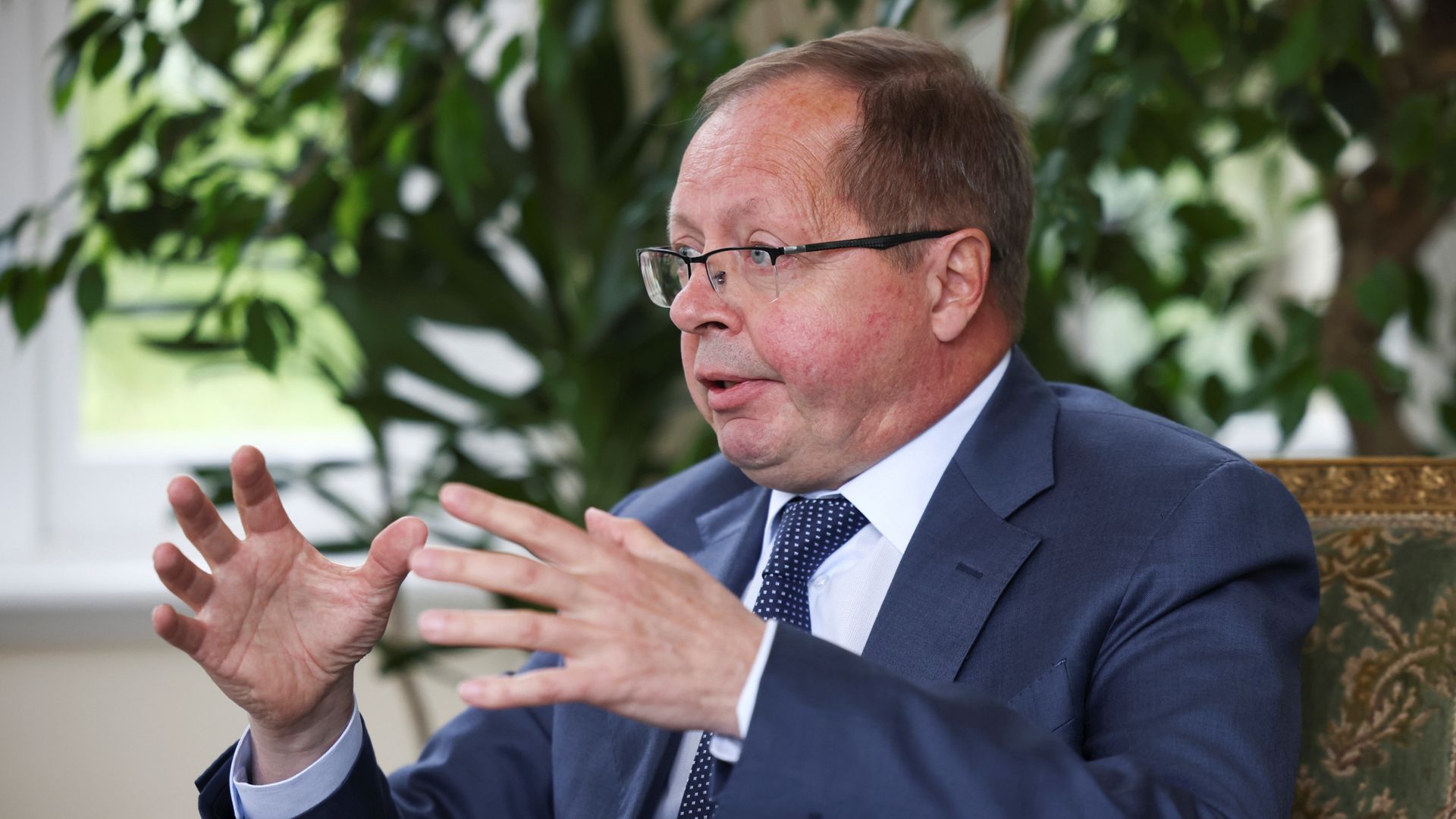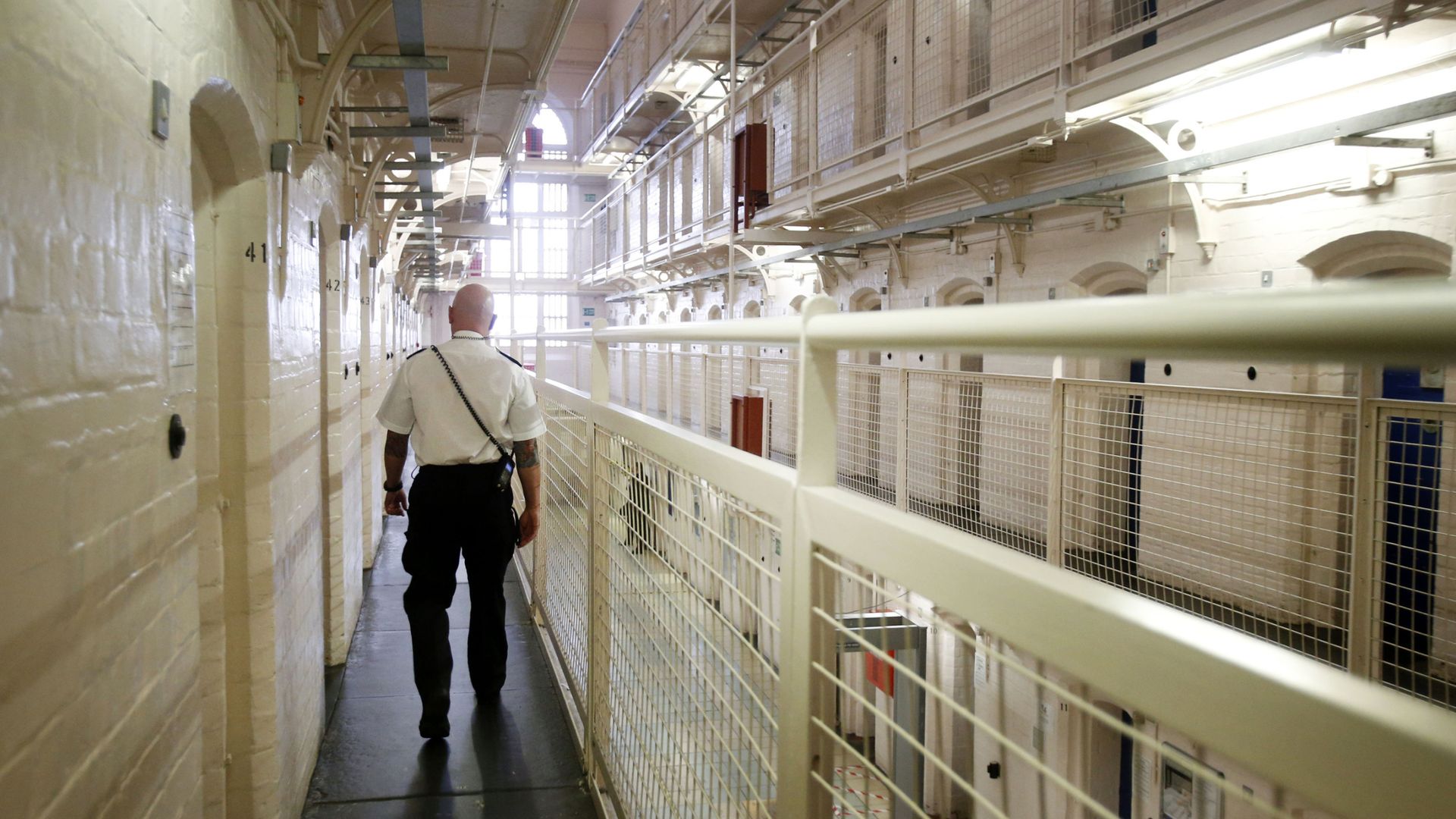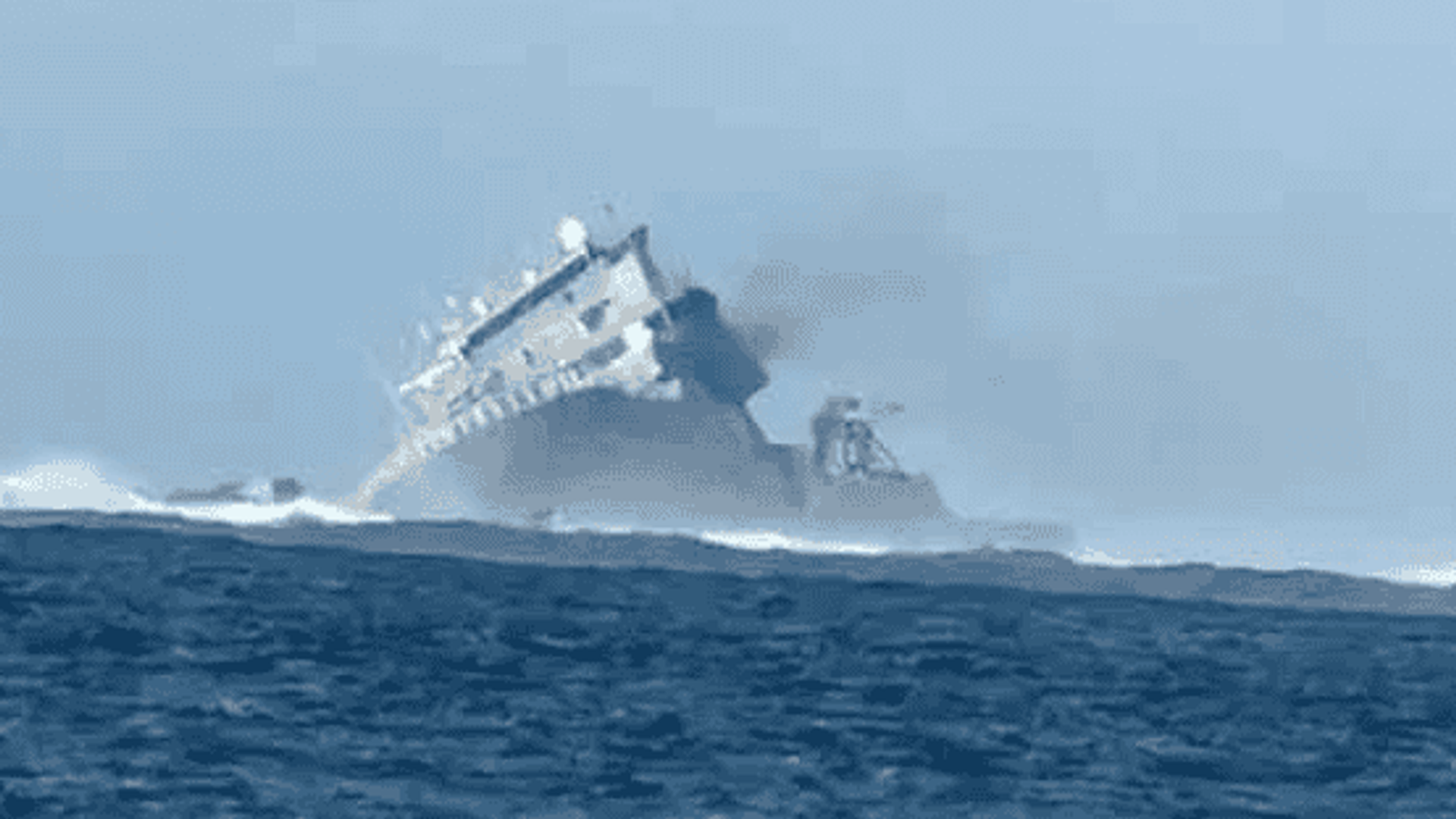Britain is now “directly involved” in the Ukraine war after its Storm Shadow missiles were used to strike targets inside Russia, according to Moscow’s ambassador.
Speaking to Sky News’ Mark Austin, Andrei Kelin also warned the West to carefully consider the lower bar Russia has established for using nuclear weapons.
It comes after Western allies green-lit Ukraine‘s use of long-distance missiles to strike inside Russia this week, following months of requests.
War latest: Follow live updates
British Storm Shadow missiles were fired into Russia just days after President Biden authorised the same policy shift and gave approval for US long-range missiles to attack over the border.
Please use Chrome browser for a more accessible video player
Asked if the move had dragged Britain into the conflict, Mr Kelin said: “Absolutely, Britain and UK is now directly involved in this war, because this firing cannot happen without NATO staff, British staff as well.”
He added: “The US administration, support by France and the UK, has made a deliberate decision to make these strikes, which seriously escalates the situation, and it can bring a collision between the nuclear powers.”
Mr Kelin called it “deliberate cheating of us” as he had received multiple assurances the Storm Shadows would only be used inside Ukrainian territory.
Asked what the difference was between Ukraine using British missiles and Russia using Chinese, Iranian and North Korean equipment and manpower – and whether they were also directly involved – Mr Kelin pointed to foreign fighters on the Ukrainian side.
“On that subject, I can say easily that we have plenty of mercenaries from different countries that are fighting right now on the side of Ukraine,” he said.
“We just have seen in the Kursk area of the Polish unit, which has a special uniform worn by Polish soldiers. So what’s the matter?”
In response to Mr Kelin’s comments, a Downing Street spokesperson said the government would not be “deterred or distracted by commentary from Vladimir Putin or the Russian ambassador”.
Until this week, Britain said its tanks, anti-tank missiles and other equipment could be used inside Russia, but had kept restrictions on long-range missiles – echoing America’s policy.
President Putin also raised the spectre of nuclear weapons once again this week when he approved changes that lower the threshold for such a strike.
Many have dismissed the move as empty sabre rattling, but Russia’s ambassador told Sky News he hoped the change “would be carefully considered by Western experts” as underestimating the risk of escalation is “dangerous”.
The air-to-air missile has a strike capability of nearly 200 miles (300km) – meaning it would potentially allow Ukraine to hit further into Russian territory.
The missile weighs 1.3 tonnes and is just over 5m long.
It is launched from the air, and in theory can be used from Ukraine’s Soviet-made jets.
UK-owned Storm Shadow missiles are made in Stevenage by MBDA. Each cruise missile costs an estimated £2m.
The Storm Shadow was originally developed as a project between the UK and France in the mid 1990s.
It was used in Iraq in 2003, while France, Italy and the UK used it in Libya in 2011.
The missiles have also been used to bomb Islamic State targets in Syria and Iraq.
Russia ‘uses ballistic missile’
There were also unconfirmed reports on Thursday that Russia had fired an intercontinental ballistic missile (ICBM) into Ukraine.
President Zelenskyy said the attack had the “characteristics” of a ICBM.
He added: “Today, our crazy neighbour has once again shown what he really is and how he despises dignity, freedom, and human life in general.
“He is so afraid that he is already using new missiles.”
An investigation is under way to confirm the type of missile, he added.
A spokesperson for the British Prime Minister Sir Keir Starmer said reports of the missile’s use were “deeply concerning”.
Read more from Sky News:
Why is there talk of World War Three?
Arrest warrant issued for Israeli PM
Be the first to get Breaking News
Install the Sky News app for free
During a live briefing earlier, Russian foreign ministry spokesperson Maria Zakharova received a call and was told not to comment on the ICBM reports.
“Yes, hello,” Ms Zakharova said, according to the recording of the briefing.
“Mash,” said the man, who was not identified.
“Yes, I am at a briefing,” Ms Zakharova said.
“About the ballistic missile strike on Yuzhmash (rocket company Pivdenmash) that the Western media are talking about, we are not commenting at all,” the man said.






